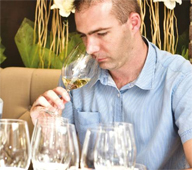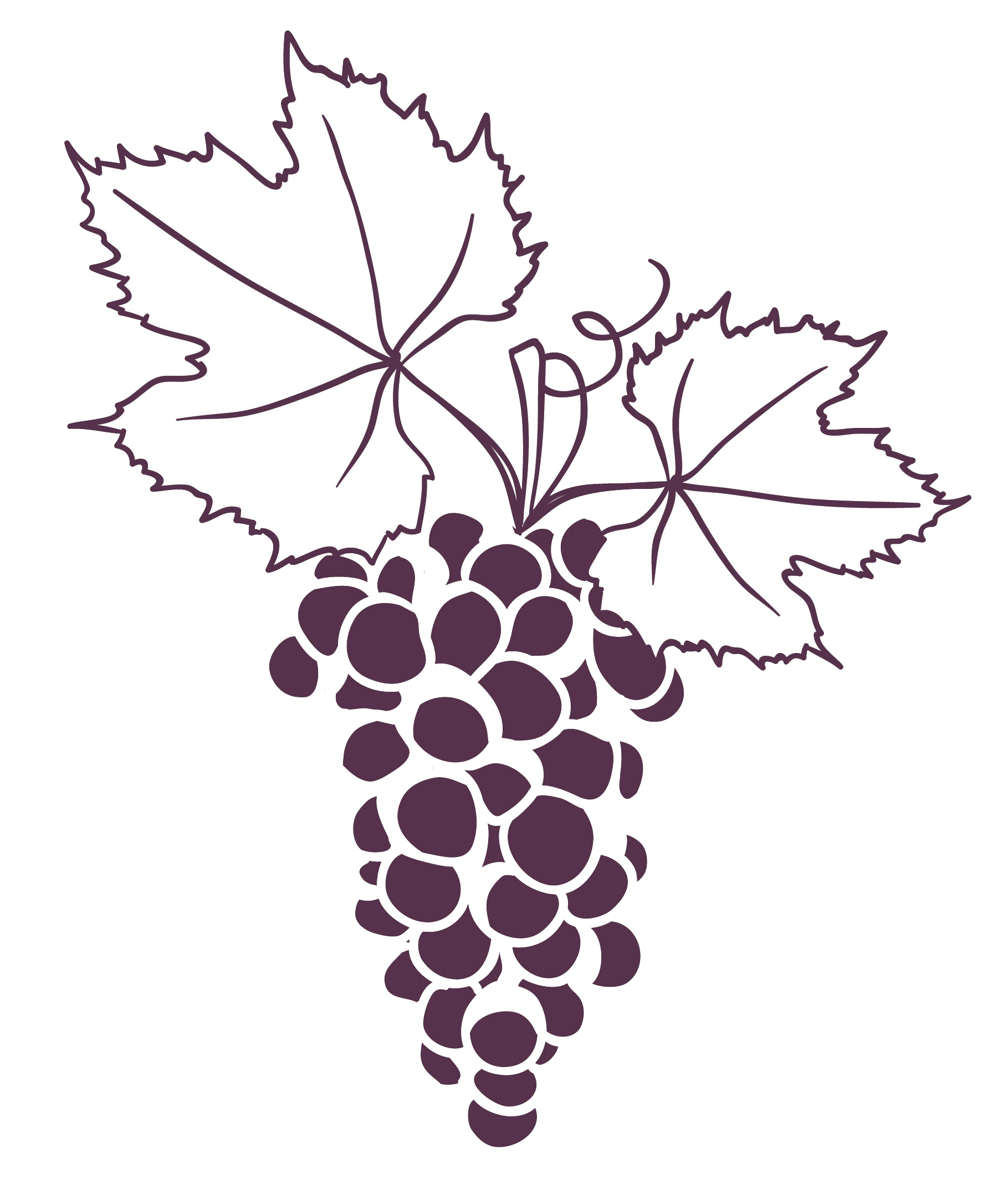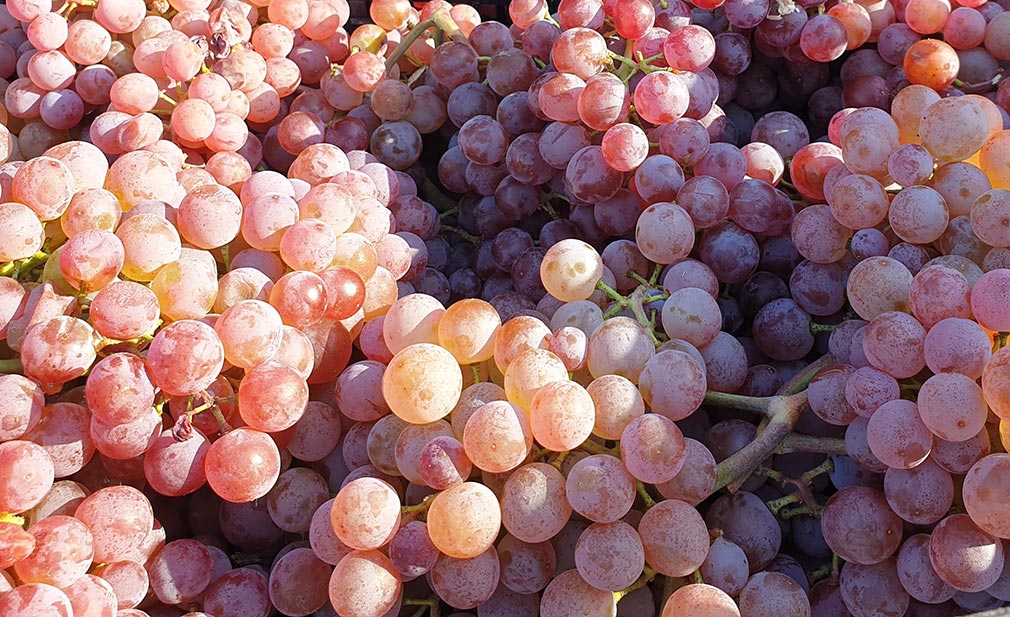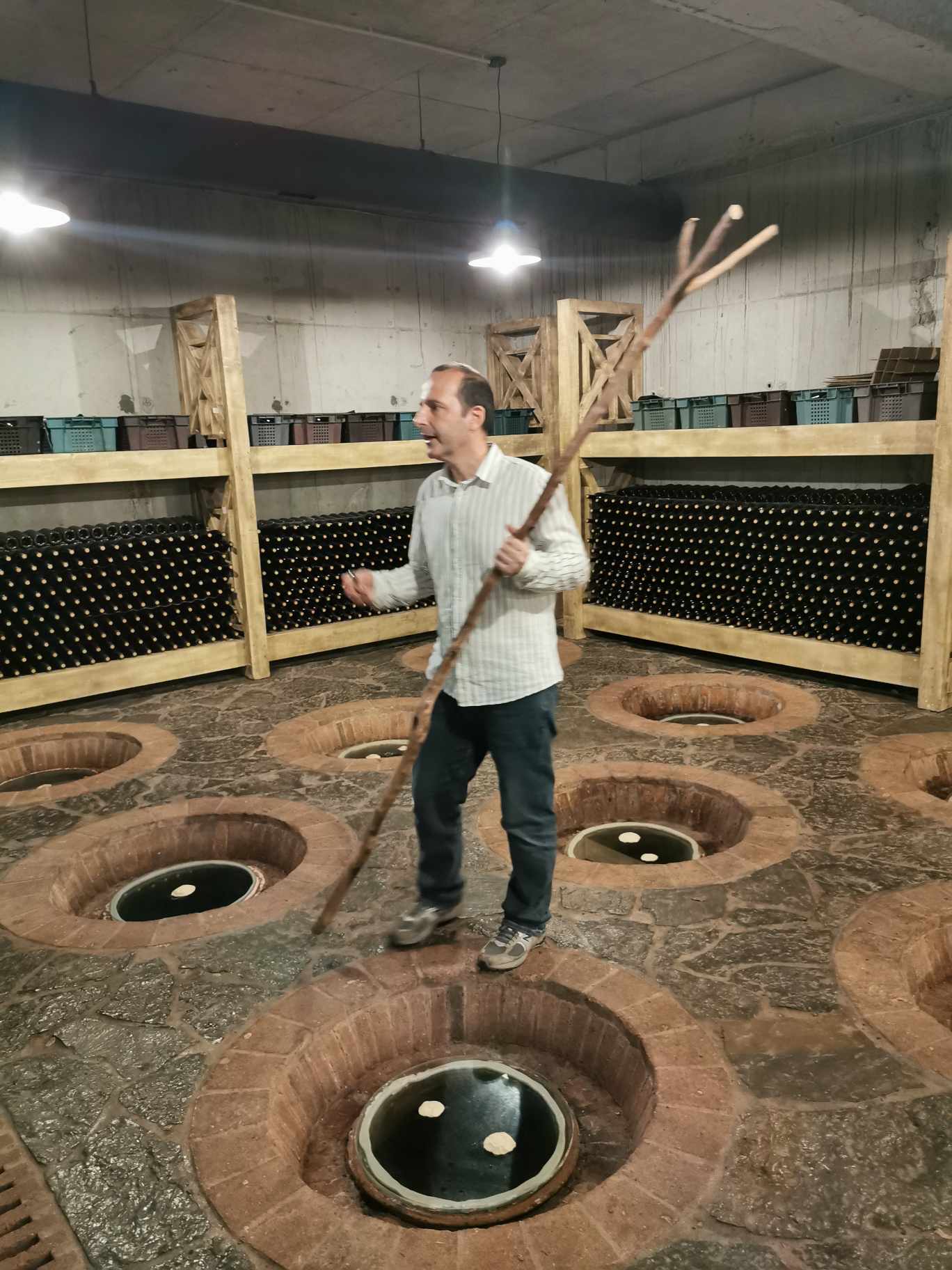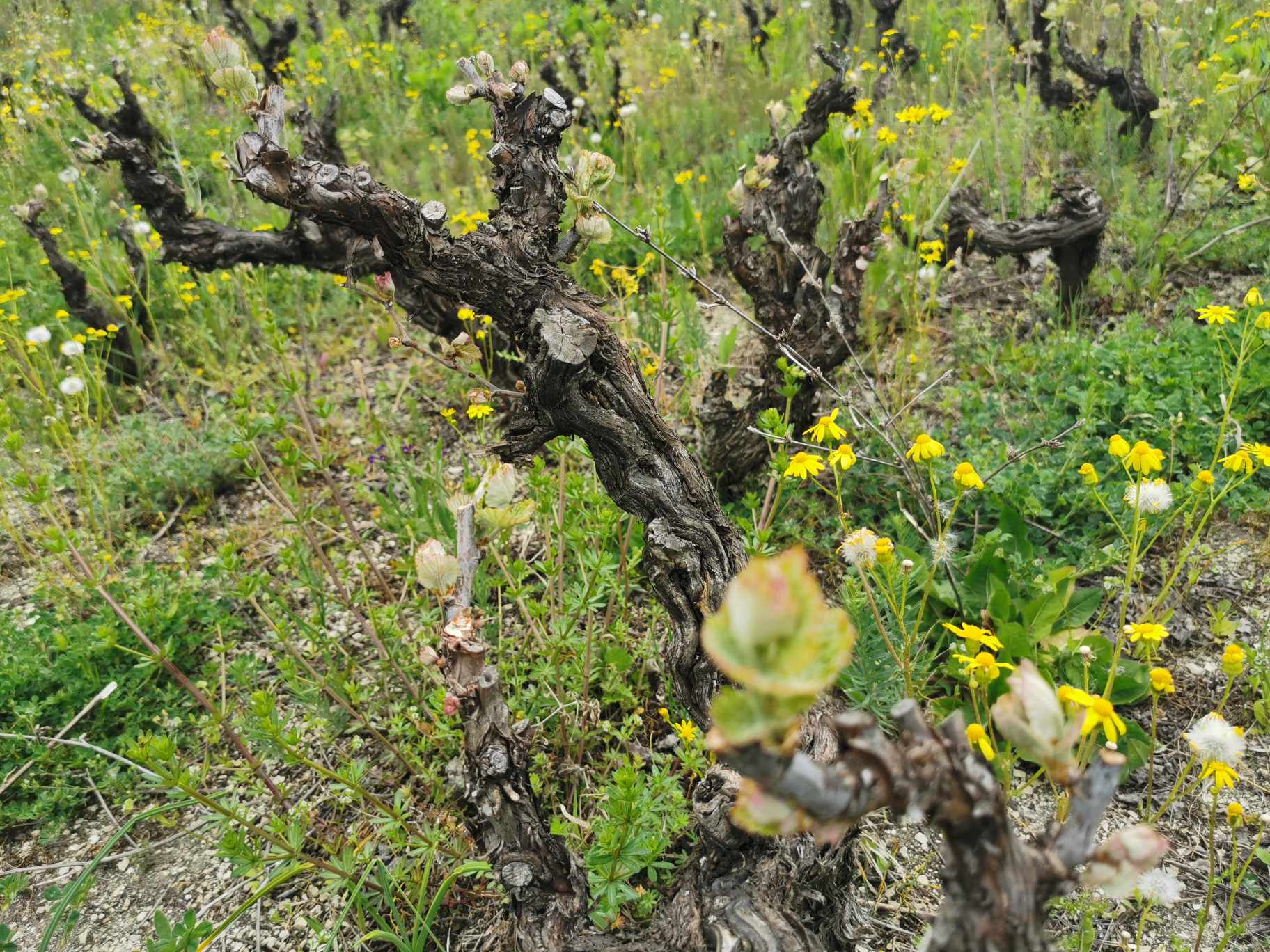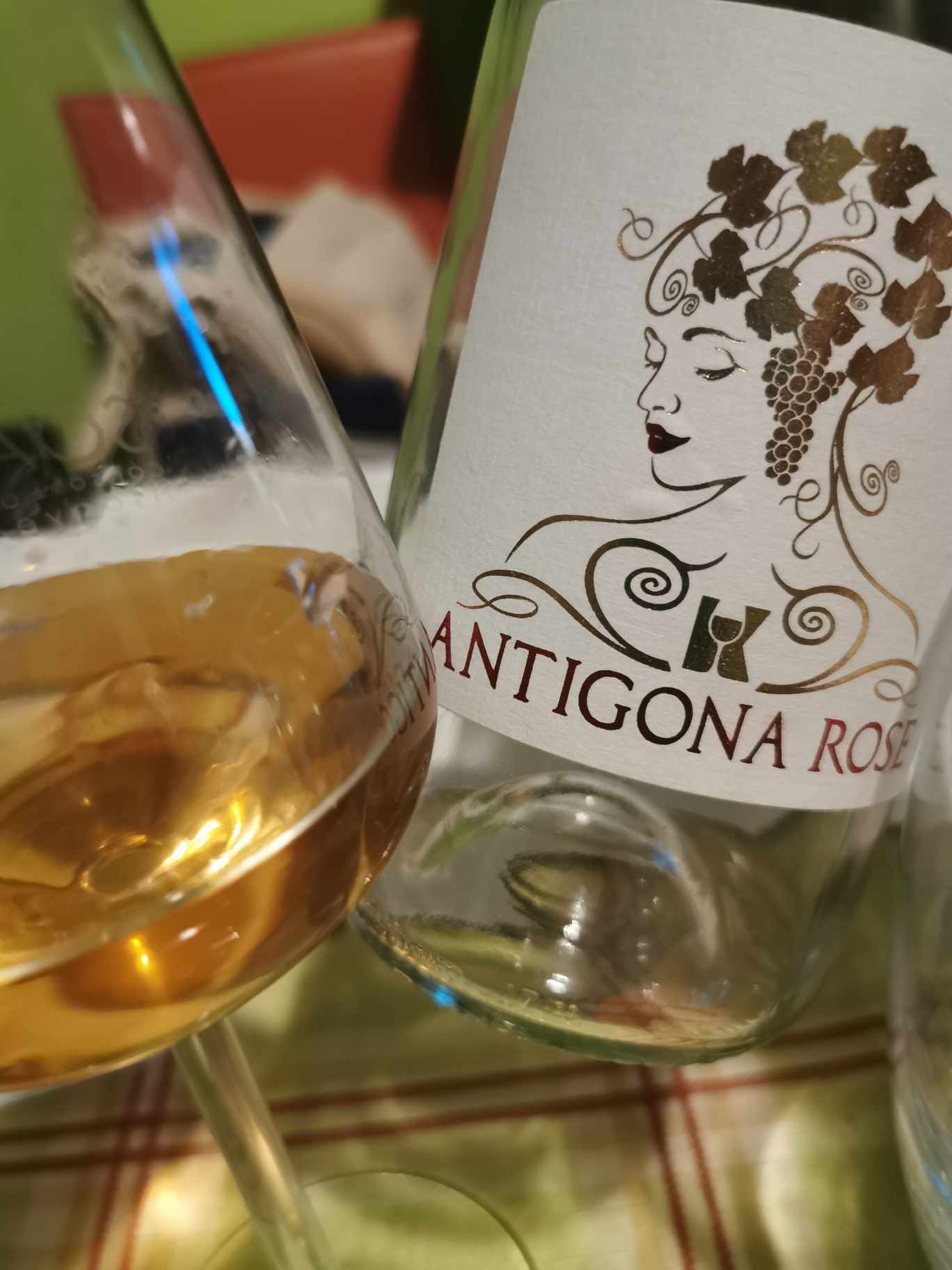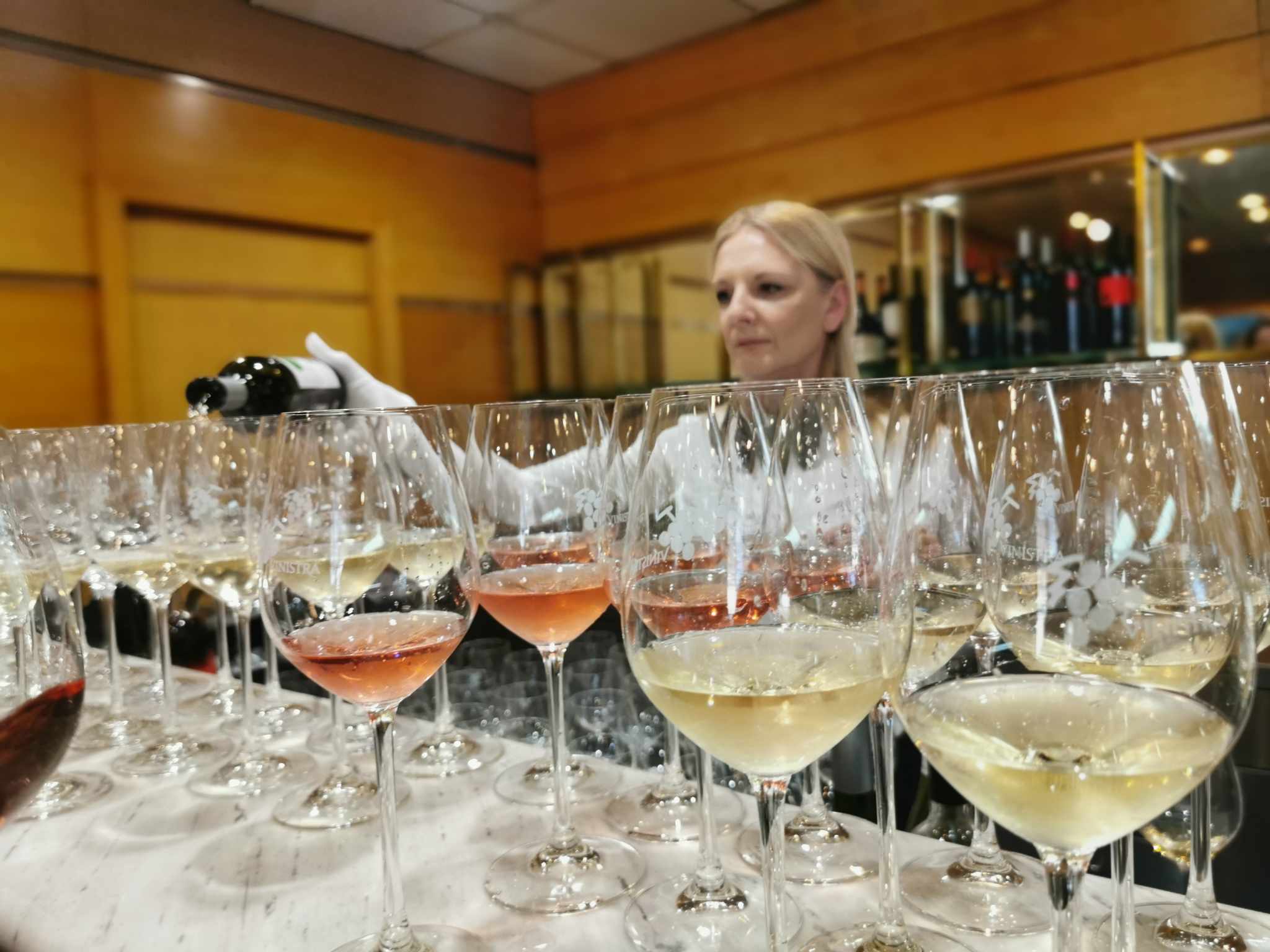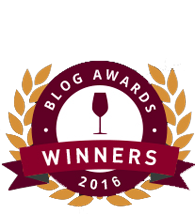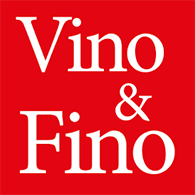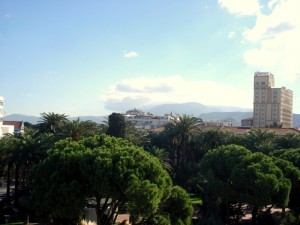
The second day of EWBC began with another technical workshop where the audience could get tips and advice concerning applications which contribute to better content management on a blog/website.From an early morning, a special atmosphere can be felt in the air - everyone is awaiting the afternoon Masterclass Workshop where Tim Atkin, MW (
http://en.wikipedia.org/wiki/Tim_Atkin ) and Charles Metcalfe (
http://www.charlesmetcalfe.com/about-charles.en.aspx ) would present wines of the Middle East. A break between two lectures was a great opportunity to continue the tour of Turkish winery stands. I overheard a conversation in the hall and learnt that only selected wineries were invited to this exhibition, so the stands truly show the best of Turkish wines.
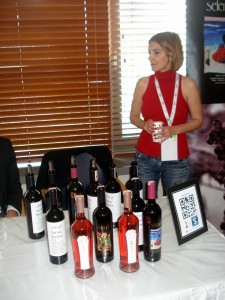
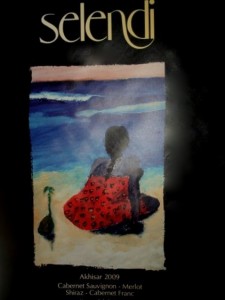
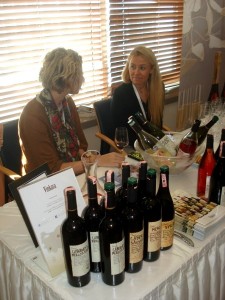
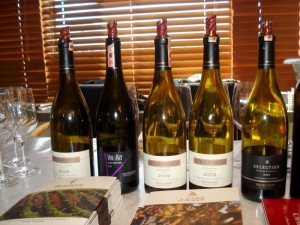
What followed next was a lecture "Travel, food and wine in context". Moderator of this panel discussion was Wink Lorch, a lecturer, writer and author of Wine Travel Guides, while the panelists were Su Birch, CEO of organization Wines of South Africa, Wendy Crispell, organizer of educational wine seminars and consultant, specialized in cheese, as well as Paola Tich, the author of blog
http://www.sipswooshspit.com/index.php/about-2/ and Per Karlsson, owner of a Swedish travel agency specialized in wine tourism.
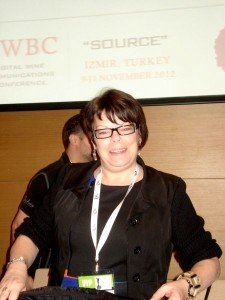
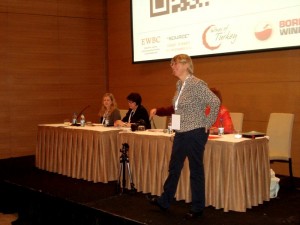
Conclusion made by all panelists was that wine experts often overestimate their audience, so sometimes they tend to present wines with too many technical details, which may make average wine consumers feel uncomfortable because they don't feel competent enough. Therefore, one will connect better with tourists if the story about wine is combined with stories about food and travel. Thus, people will be given exactly what they expect, which is good fun (the concept of "cold wine & hot sex"). The goal is to experience and feel something authentic.
Per Karlsson drew attention to a common situation when he visits a wine cellar with a group of tourists and get welcomed by a wine-maker who doesn't have much experience in hosting tourists. On the other hand, tourists expect him to tell interesting authentic stories. Quite often, the conversation is summarized into a sentence which virtually every wine-maker repeats like a mantra: "I am not like other wine-makers, because my wines are created in the vineyard, rather than in the cellar". What follows next is a bunch of technical details related to wine production process, which the tourists are not familiar with. Tourists expect and they should get a presentation of not only wines from the given region, but also the story should be accompanied with details about food, history and cultural landmarks of the region.
Finally, at 15.30h, the Grand Terroir Experience started - Masterclass Workshop of selected wines from Turkey, Georgia, Lebanon and Armenia, led by T. Atkin and C. Metcalfe. Unfortunately, the wine from Egypt failed to arrive for this tasting due to complicated (and lengthy) customs formalities. The tasting itself looked grand - huge conference hall hosts 300 participants from 40 countries for a presentation of wines from the Middle East. An image resembling those from the UN sessions...
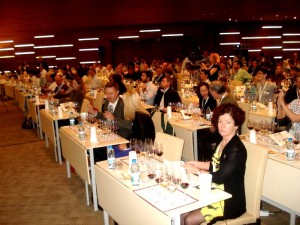
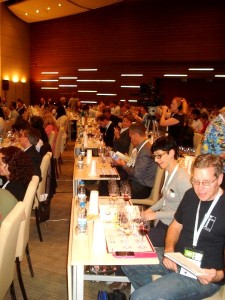
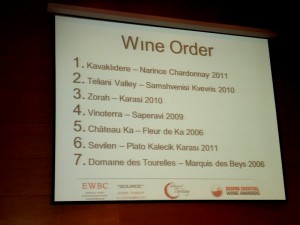
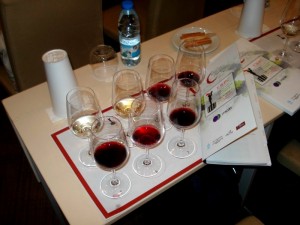
Similar to Serbia, and I guess the situation is the same in most of the emerging wine countries, Turkish wine lovers perceive oak aromas as an indication of wine quality. Automatically, it is thought that wine is better if matured in oak barrels, and this perception also affects the pricing - wines which mature in oak barrels should be more expensive. As wine culture develops, this perception will evolve and people will understand that one should first look for grape aromas in the wine, while oak aromas should only complement the former.
After Masterclass Workshop, we could visit stands of wineries from the region in the foyer and taste some more wines, such as wine produced in traditional Georgian amphoras called "qvevri" or Armenian amphoras "karas".
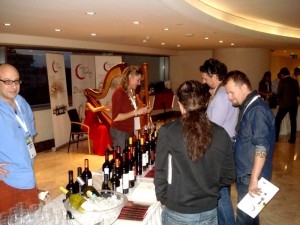
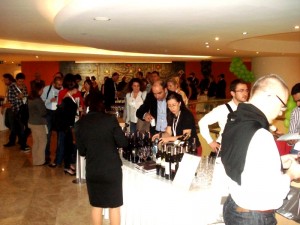
Gala Dinner was an opportunity for organizers to thank sponsors and all those who contributed to flawless organization of the conference. During the dinner, each course was paired with two wines... Of course, I couldn't set off from Serbia without several bottles of Serbian wines packed in my suitcase. At the gala dinner, steak was paired with Turkish Cabernet Sauvignon wine, and since the general conclusion of all of us seated at the table ( and there were 12 of us in total, coming from Germany, Denmark, Great Britain, Hungary, France, Turkey and, of course, Serbia) was that this was the least impressive wine of the evening, I proposed to replace it with a Serbian Cabernet (Radovanović Cabernet Sauvignon Reserve), which was warmly welcomed by the others. Waiters brought more glasses and Radovanović Cabernet was poured. Caro Maurer, MW from Germany, didn't hide her excitement for having an opportunity to taste for the first time some Serbian wine. Then she commented that Cabernet is made skillfully and that she would like to see some Serbian wineries exhibiting at PRO WEIN fair in Dusseldorf...
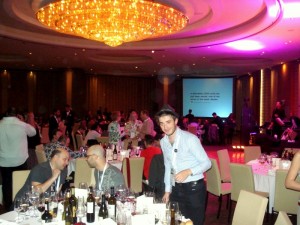
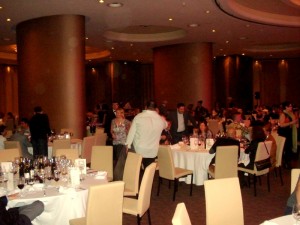
Photo below (left to right): Tomislav Ivanović, Caro Maurer MW (Germany) and Mads Jordansen (editor-in-chief of Danish web-blog
www.winelab.dk )
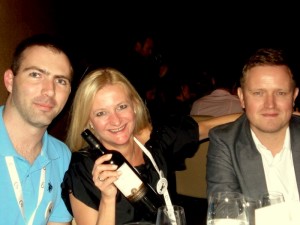
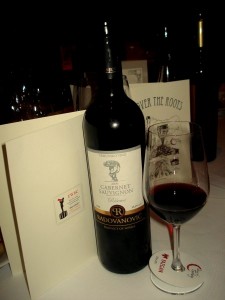
BACK TO CATEGORY
 The second day of EWBC began with another technical workshop where the audience could get tips and advice concerning applications which contribute to better content management on a blog/website.From an early morning, a special atmosphere can be felt in the air - everyone is awaiting the afternoon Masterclass Workshop where Tim Atkin, MW ( http://en.wikipedia.org/wiki/Tim_Atkin ) and Charles Metcalfe ( http://www.charlesmetcalfe.com/about-charles.en.aspx ) would present wines of the Middle East. A break between two lectures was a great opportunity to continue the tour of Turkish winery stands. I overheard a conversation in the hall and learnt that only selected wineries were invited to this exhibition, so the stands truly show the best of Turkish wines.
The second day of EWBC began with another technical workshop where the audience could get tips and advice concerning applications which contribute to better content management on a blog/website.From an early morning, a special atmosphere can be felt in the air - everyone is awaiting the afternoon Masterclass Workshop where Tim Atkin, MW ( http://en.wikipedia.org/wiki/Tim_Atkin ) and Charles Metcalfe ( http://www.charlesmetcalfe.com/about-charles.en.aspx ) would present wines of the Middle East. A break between two lectures was a great opportunity to continue the tour of Turkish winery stands. I overheard a conversation in the hall and learnt that only selected wineries were invited to this exhibition, so the stands truly show the best of Turkish wines.















